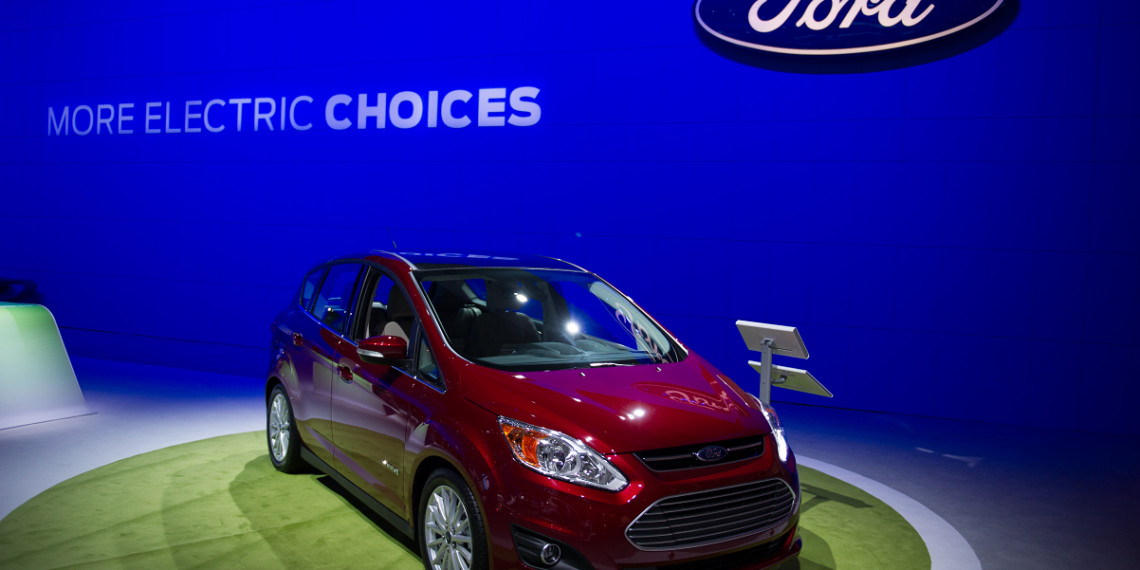US automaker Ford Motor Co. has signed long-term lithium supply agreements with SQM, Albemarle Corp., and Nemaska Lithium Inc. to support the company’s expanding electric vehicle production.
Ford is the world’s fifth-largest carmaker by revenue and plans to invest more than $50B to increase production of electric vehicles to 2M per annum from 2026.
SQM
SQM said its deal with Ford covers the supply of battery-grade lithium carbonate and lithium hydroxide, which are used in the production of EV batteries.
“This alliance will allow both companies to contribute further to the decarbonization of the planet on a global scale,” said Carlos Diaz, SQM’s executive vice president of potassium and lithium operations.
SQM produces lithium from its operations on the Salar de Atacama in northern Chile. It is currently expanding its capacity to reach 210,000t/a of lithium carbonate and 40,000t/a of lithium hydroxide from 2024.
SQM highlighted that the lithium produced in Chile should help Ford vehicles qualify for a consumer tax credit under the US government’s Inflation Reduction Act.
Albemarle
US-based Albemarle, which has lithium hydroxide production facilities in the Americas, Europe, Asia, and Australia, said it will supply more than 100,000t of battery-grade lithium hydroxide to Ford through a five-year supply agreement that starts in 2026 and continues through 2030. This is enough lithium hydroxide for about 3M future Ford EV batteries, according to Albemarle.
Also, Albemarle said it will work with Ford to explore the development of a closed-loop solution for lithium-ion battery recycling.
The lithium hydroxide supplied to Ford will be produced domestically in the US or originate in a country with a US free trade agreement. Albemarle operates two lithium brine operations to extract raw material, one in the Salar de Atacama in Chile and the other in Clayton Valley, Nevada.
Albemarle recently announced plans to locate a lithium hydroxide “mega-flex” facility in Chester County, SC, with construction expected to begin in late 2024, subject to relevant permitting approvals. The facility will be able to process diverse lithium feedstock, including lithium from recycled batteries, and is expected to produce about 50,000 t per annum of battery-grade lithium hydroxide from multiple sources, with the potential to expand to 100,000 t per annum.
Nemaska Lithium
Ford has also entered a long-term agreement with Nemaska Lithium for the supply of lithium products over an 11-year period. The agreement calls for the delivery of up to 13,000 t per annum of lithium hydroxide, Nemaska said.
Prior to the startup of lithium hydroxide production at Nemaska’s Bécancour project, Quebec, the company will supply Ford with spodumene concentrate from its Whabouchi mine. Construction of the lithium hydroxide conversion plant will begin in 2023.
Ford sees deals de-risking supply
“Our plan is significantly de-risked with these agreements versus relying on investment in junior producers or smaller entrants who are still in permitting or extraction and processing development,” Lisa Drake, vice president of EV Industrialization for Ford Model e, said.
The three lithium supply agreements give Ford’s Michigan EV battery plant stability. The company also is investing in US-based development projects with Compass Minerals International Inc., Ioneer Ltd. and EnergySource Minerals LLC.












